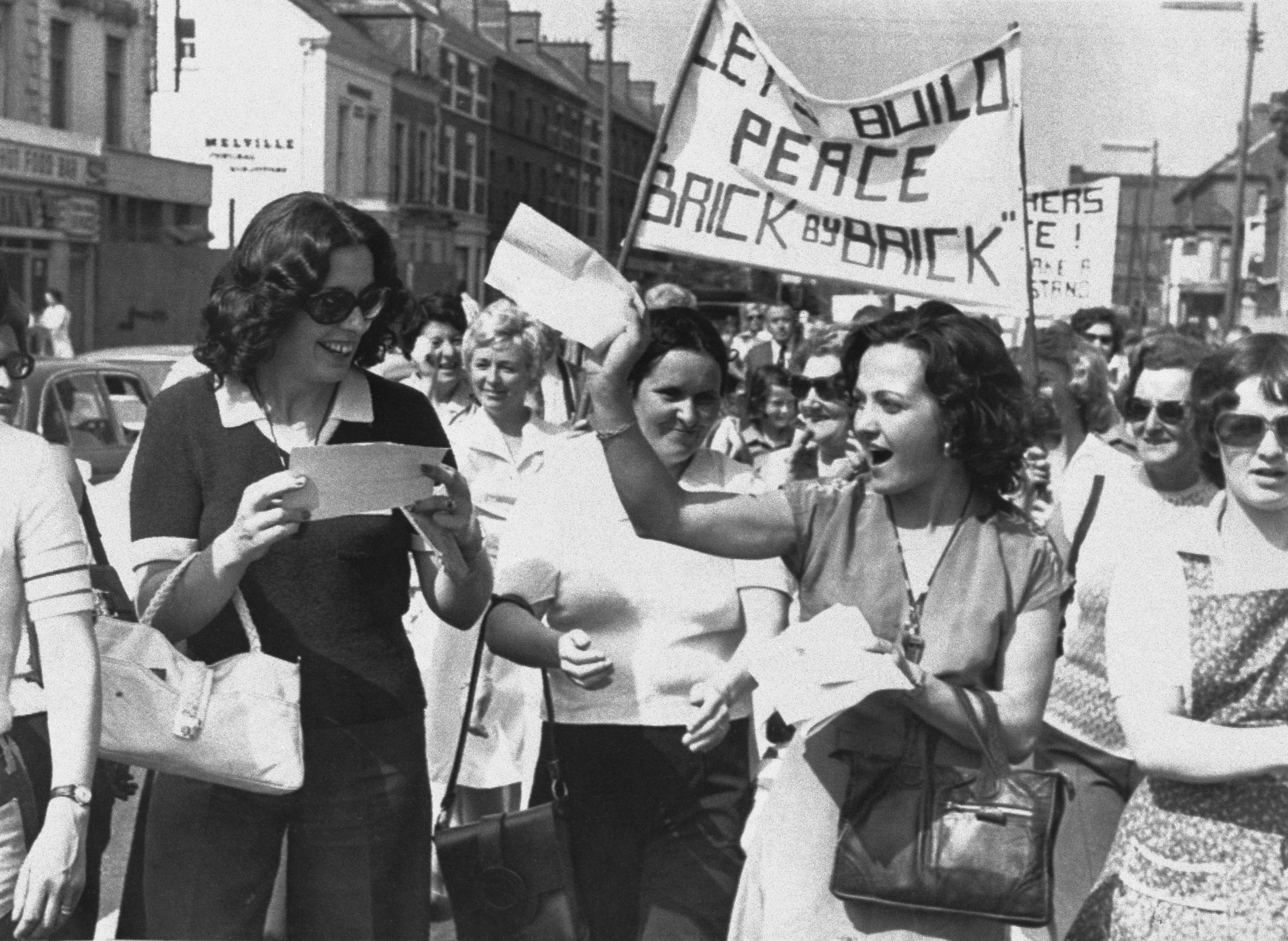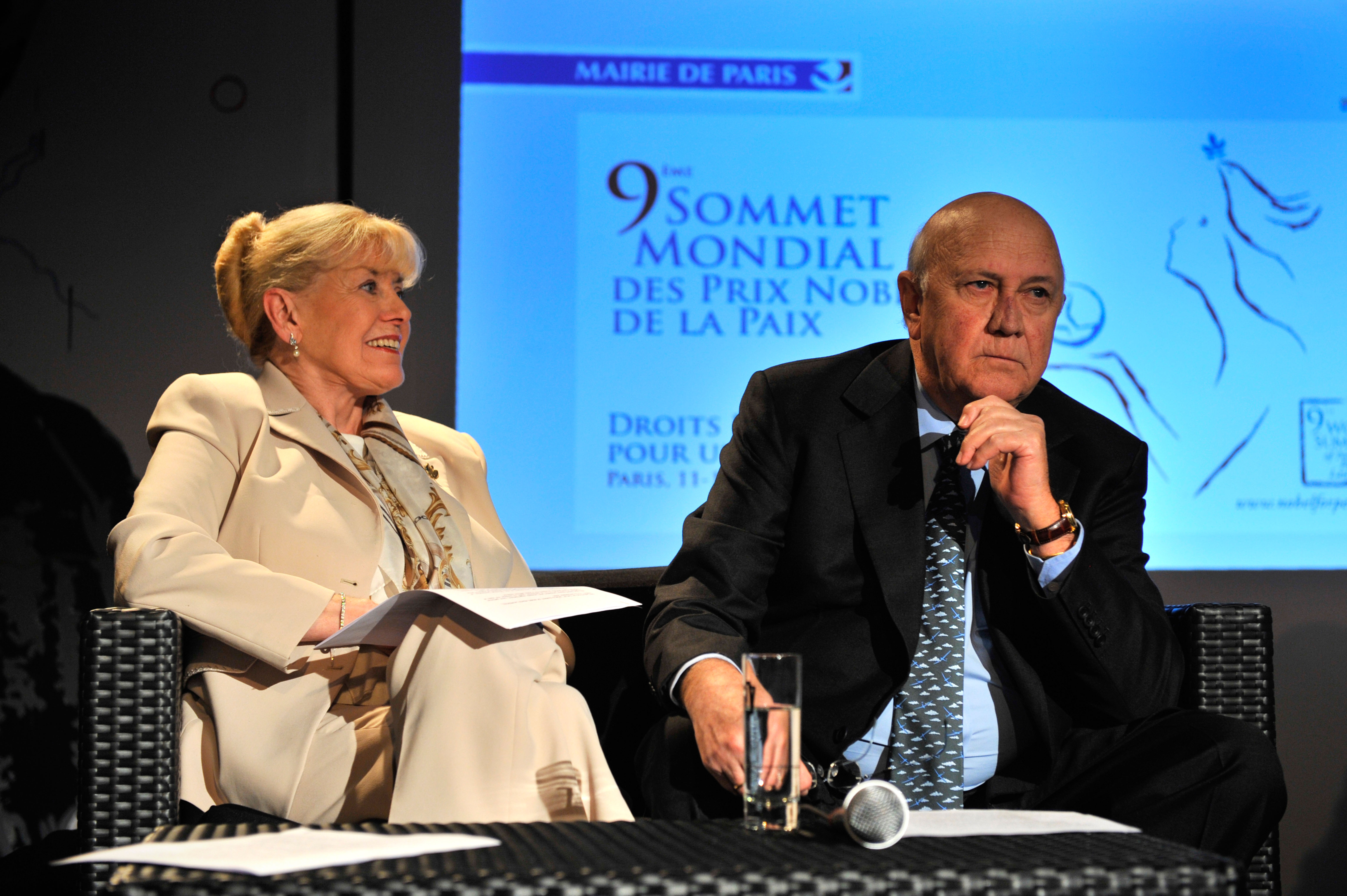Williams, Betty (1943-2020), an office worker from Belfast, Northern Ireland, was a cofounder in 1976, with Mairead Corrigan and Ciaran McKeown, of the Northern Ireland Peace Movement, later called the Peace People or Community of Peace People. For their courageous stand against political and religious violence in Northern Ireland, Williams and Corrigan were awarded the 1976 Nobel Prize for peace, presented in 1977. They also received, in 1976, the “People’s Peace Prize,” a cash prize donated to them by the people of Norway, as well as other international honors.

Elizabeth Smyth was born on May 22, 1943, in Andersonstown, a Roman Catholic area of Belfast. She was the child of a Protestant father and a Catholic mother. In 1956, her mother had a stroke and Elizabeth, known as Betty, took responsibility for running the family home. Educated in local Catholic schools, she later took secretarial courses. In 1961, she married an Englishman, Ralph Edward Williams, an engineer in the United Kingdom’s merchant navy. In the late 1960’s, British soldiers were sent to Northern Ireland to help keep order and to combat the terrorism of the Irish Republican Army (IRA), a group that used violence to seek Northern Ireland’s freedom from British rule. Betty Williams saw the troops harass protesters, and her sympathies at first lay with the IRA. But as the death toll mounted over the years, she became opposed to violence by both Roman Catholics desiring independence and Protestants loyal to the United Kingdom. She therefore became a peace protester. 
In August 1976, Williams witnessed an incident in which an IRA terrorist, speeding away in a car from a police patrol, was shot dead. The vehicle went out of control and crashed into heavy iron railings, which fell onto a group of pedestrians, killing three children. Williams circulated petitions to her neighbors, demanding an end to violence. She joined with Mairead Corrigan, the children’s aunt, in leading a peace march through Andersonstown. The march attracted 10,000 women, both Catholic and Protestant, all calling for an end to the bloodshed. The two “peace women,” as they became known, and Ciaran McKeown, a journalist, organized a peace movement that eventually became the Peace People.
As the campaign spread, the Peace People organized marches both in Northern Ireland and on the mainland of the United Kingdom. Williams and Corrigan called for integrated schools, playgrounds, sports clubs, and residential areas as a means of building trust between Protestants and Catholics and eventually bringing peace to the troubled region. With international financial assistance, including the Nobel Prize money, they provided a special bus service to help families visit paramilitary prisoners in jail, started a peace-movement newspaper, and set up a relocation settlement in New Zealand for members of paramilitary groups to start a new life without fear of revenge.
The Peace People succeeded in reducing the level of violence but did not end it. In 1978, Williams and Corrigan resigned as leaders of the movement so that others could have a chance to run it. In 1980, Williams left the Community of Peace People and founded her own reconciliation movement. She moved to the United States in 1982. In 2004, she moved to the Republic of Ireland. Williams died in Belfast on March 17, 2020.
